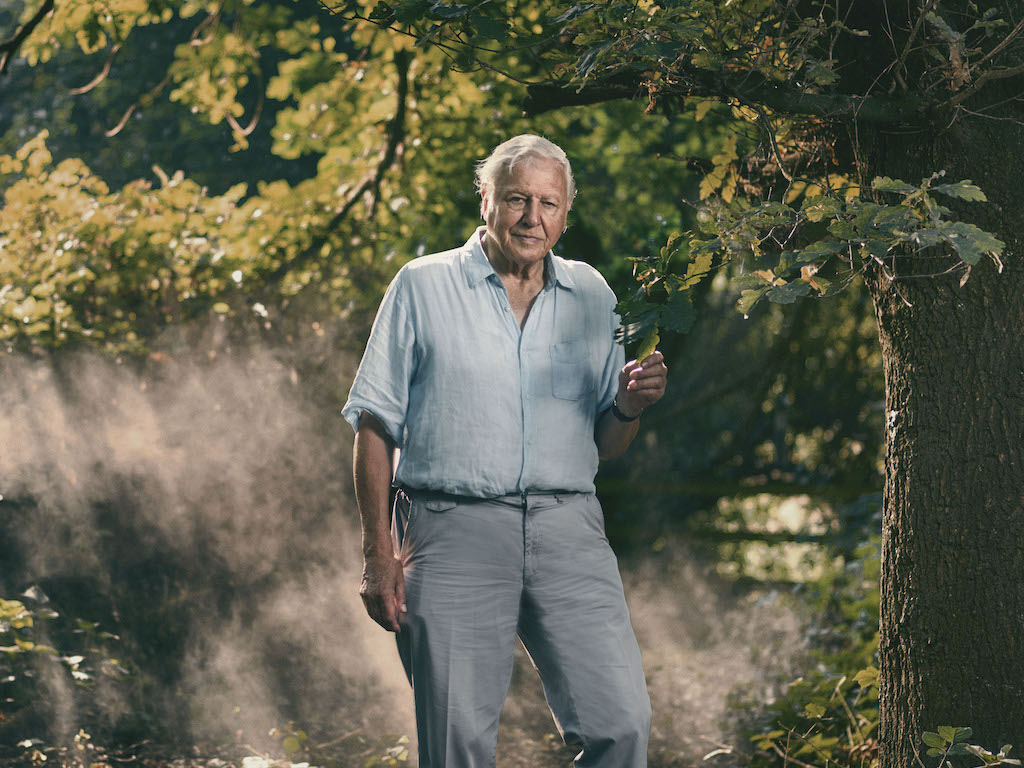3 Mins Read
In his most recent return to television screens, Sir David Attenborough warns the world about the crisis our planet is in. Premiered on the BBC last weekend, the documentary saw the legendary naturalist deliver a stark message about mass biodiversity loss and the consequences that the world will face as a result.
Unlike his usual productions that tracks the wonders and beauty of the natural world, Attenborough’s latest documentary titled Extinction: The Facts has a radically different tone. “We are facing a crisis,” he says at the very start of the film. “One that has consequences for us all.”
Over the course of the one-hour programme, Attenborough takes viewers on a journey through scenes of destruction due to humankind’s activities on Earth. In one scene, monkeys jump from trees into a river in order to make a hasty escape from a wildfire, while another sequence shows a koala struggling to find shelter as its natural habitat is ablaze.
There are an estimated 8 million species inhabiting our planet, the film tells us, and almost one million are now already threatened with extinction. Since the 1970s, vertebrate animals have declined by at least 60%. That’s within the past few decades.
Over the course of my life I’ve encountered some of the world’s most remarkable species of animals. Only now do I realise just how lucky I’ve been – many of these wonders seem set to disappear forever.
Sir David Attenborough
While species do naturally go extinct, Attenborough says that the current rate of extinction is speeding up at such a dramatic rate that it now exceeds the natural course by 100 times – and this figure is still on the rise. In a study published in June this year, scientists said that 500 land animal species are now on the verge of disappearing forever in just 20 years.
Read: Sir David Attenborough urges people to ditch meat in ‘A Life On Our Planet’ documentary
“Over the course of my life I’ve encountered some of the world’s most remarkable species of animals. Only now do I realise just how lucky I’ve been – many of these wonders seem set to disappear forever,” he remarks in the film.
Biodiversity loss will not only mean that we will no longer be able to appreciate the different creatures, flora and fauna in nature, but will also impact our own survival too. The loss of nature’s pollinators, such as wild bees, could threaten the crops that we depend on for food, or other plants that help regulate water flow and produce the oxygen we need.
I may not be here to see it. But if we make the right decisions at this critical moment, we can safeguard our planet’s ecosystems, its extraordinary biodiversity and all its inhabitants.
Sir David Attenborough
The coronavirus pandemic is another clear instance of the dangers that come with the rampant destruction of nature and wildlife, a warning many scientists and experts have raised alarm bells about in recent months.
However, as with all Attenborough’s films, Extinction: The Facts ended with a clear message that there is still hope as long as immediate action takes place. “I may not be here to see it. But if we make the right decisions at this critical moment, we can safeguard our planet’s ecosystems, its extraordinary biodiversity and all its inhabitants.”
Ending with a powerful line, Attenborough said: “What happens next is up to every one of us.”
Lead image courtesy of BBC / Sam Barker.




